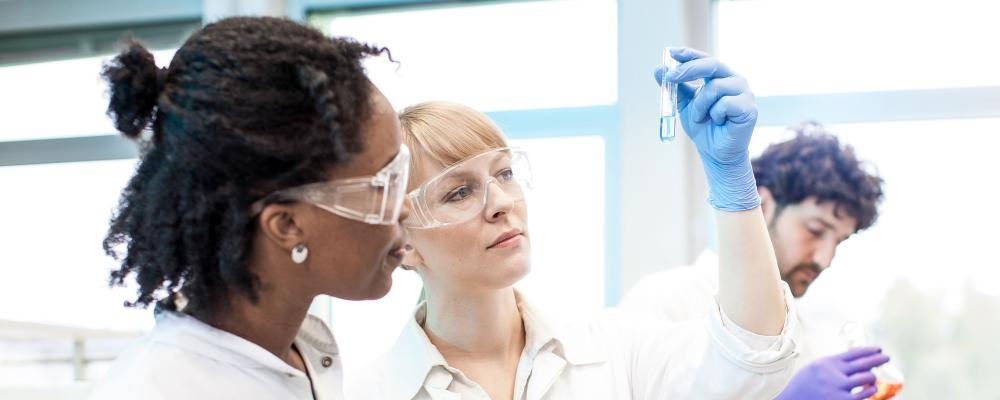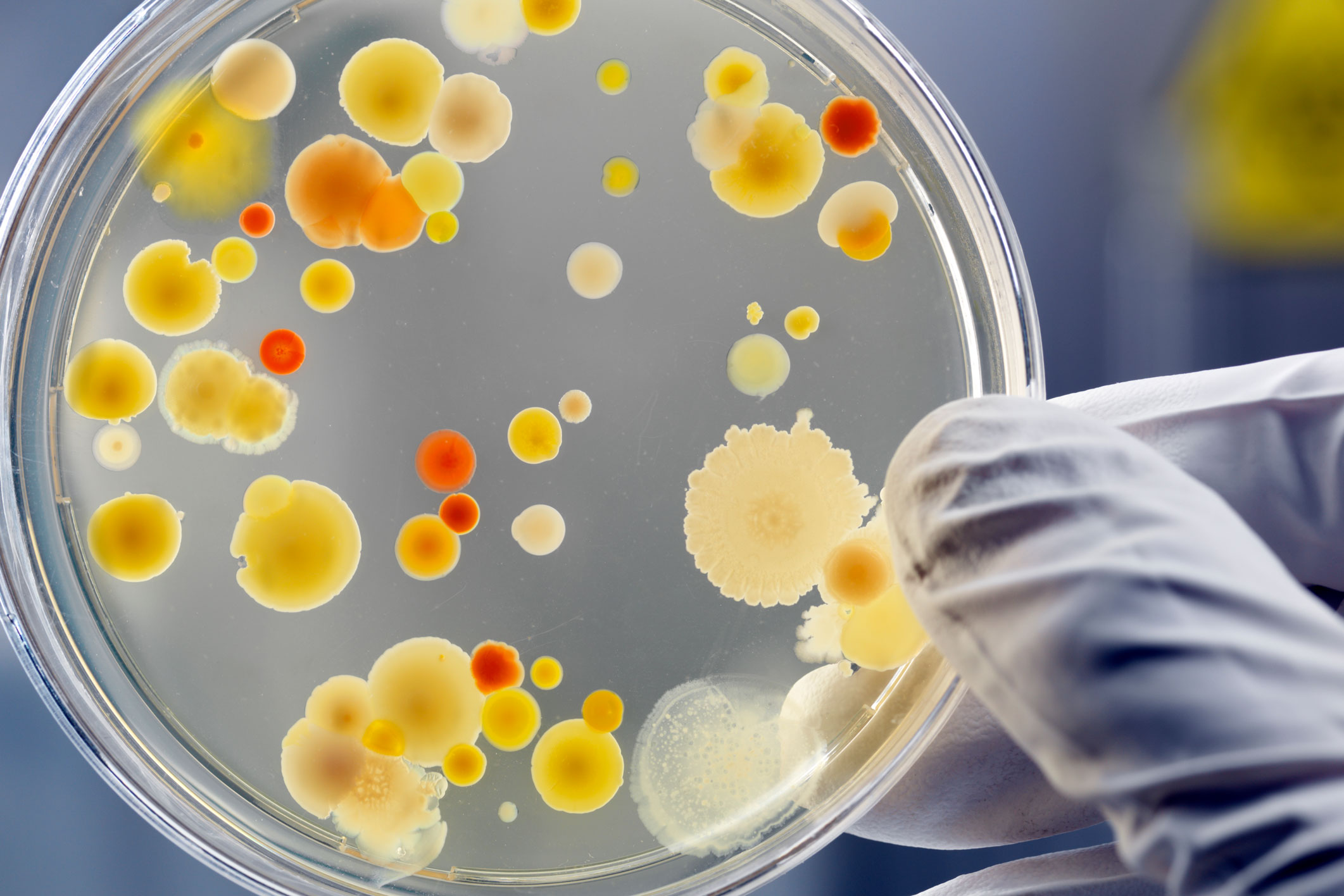Portal Our Laboratories


Reference activities of the Plant Health Laboratory
The Laboratory is the National Reference Laboratory for plant health, for plant pathogens requiring quarantine (organisms that can be harmful to plants such as bacteria, viruses, phytoplasmas, nematodes, insects, mites and fungi), for invasive plants (Ministerial Order of 21 May 2007) and for GMOs.
It proposes methods for official adoption by the Ministry of Agriculture and coordinates the revision of analytical protocols. It calls on a network of 20 approved laboratories responsible for first-line screening.
National Reference Laboratories (NRLs)
Bacteriology, virology and GMOs
The Bacteriology, Virology & GMO unit has five National Reference Laboratory (NRL) mandates in its three fields of competence. As part of its mandates, it carries out expert appraisal work to help the authorities make decisions; it also develops and validates official analytical methods and coordinates a network of approved laboratories by regularly organising inter-laboratory proficiency tests. Still as part of its mandates, it performs numerous specific analyses for regulated and emerging organisms and has developed a diagnostic service in bacteriology and virology aiming to prevent any new emerging threats.
The unit's five NRL mandates are as follows:
- GMOs in maize (vegetative parts) and in potatoes, beets, rice, cotton, wheat and vegetable species (seeds and vegetative parts);
- Bacteria in other matrices;
- Phytoplasmas in all matrices;
- Other viruses;
- Viroids in all matrices.
Entomology and invasive plants
The Entomology and Invasive Plants unit has two National Reference Laboratory mandates.
NRL for plant-parasitic and auxiliary insects and mites in all matrices
Every year, it identifies thousands of samples belonging to over 500 different taxa. Based on this experience, it develops tools for the identification of insects and mites using morphological or molecular (barcoding) methods. This activity enables it to contribute greatly to the drafting of methods at European or international level (European and Mediterranean Plant Protection Organization, International Plant Protection Convention). It is a partner of research programmes, for example on vectors of plant diseases and on current plant health crises (Xylella, Epitrix, etc.).
NRL for invasive plants
This NRL is involved in epidemiological surveillance and phytopharmacovigilance activities focusing on emerging invasive plants, in France and other countries, which may constitute threats to plant health. It provides support to the National Biological Surveillance (SBT) network, run by the Ministry of Agriculture. In this framework, it develops and improves protocols for monitoring weed flora, analyses and interprets data, and participates in the scientific promotion of the results. The NRL develops knowledge on the biology, ecology and impact of these emerging invasive plants. These data are taken into account in pest risk analyses (PRAs) and also improve knowledge of invasion factors.
Service catalogue and general terms of service provision (PDF) - Montpellier station
Test application form (PDF) - Montpellier station
Recommendations for the collection and shipping of samples (PDF) - Montpellier station
NRL for fungi in all matrices
This NRL develops and validates reference methods aiming to detect the quarantine fungi and oomycetes listed in the European Plant Health Regulation, directly in the plants they parasitise. The new methods it develops aim to provide high analytical performance and very rapid results. The NRL trains and supervises a network of approved laboratories for the implementation of some of these methods, by regularly organising training courses and inter-laboratory proficiency tests.
Service catalogue (PDF) - Nancy station
Recommendations for the collection and shipping of samples (PDF) - Nancy station
Sample delivery form - Nancy station
Agreement on proof - Nancy station
General terms of analytical service provision - Nancy station
NRL for plant-parasitic nematodes in all matrices
This NRL carries out expert appraisal activities for public decision-making; it also performs analyses and coordinates networks of approved laboratories for the detection of plant-parasitic nematodes. It develops analytical and detection methods in its sphere of competence. Its analytical activities are focused on detecting nematodes of importance, whether officially regulated, included on quarantine lists, or emerging in France or third countries, which potentially pose a risk to plants in France.
Service catalogue and general terms of service provision (PDF) - Rennes station
Test application form (PDF) - Rennes station
Recommendations for the collection and shipping of samples (PDF) - Rennes station
Agreement on proof - Rennes station
NRL for plum pox virus, citrus fruit viruses (excluding citrus tristeza virus, assigned to the LSV-RAPT unit) and potato viruses
This NRL manages an active network of five laboratories approved for the detection of plum pox virus based on the official method using the enzyme-linked immunosorbent assay (ELISA) technique. It has revised this method, and the method enabling it to confirm the results, twice. The unit assesses laboratory proficiency every two years.
For the other two types of viruses, the NRL itself performs official analyses.
List of methods and matrices for the detection of regulated pests (PDF) - Clermont-Ferrand station
Tropical pathogens
The Tropical Pests and Pathogens (RAPT) unit has two National Reference Laboratory mandates:
NRL for viruses of banana and tropical plants and NRL for bacteria of banana, citrus fruit and tropical plants
These mandates provide it with a scope of action covering all of overseas France, the Indian Ocean area (as part of regional cooperation), metropolitan France and, more broadly, the European Union, for issues shared with tropical regions, in particular those affecting the citrus fruit sector. The NRLs have also developed international partnerships (South Africa, Australia, etc.).
Analytical service catalogue (PDF) - Reunion Island station
Test application form - Reunion Island station
General terms of service provision (PDF) - Reunion Island station
Recommendations for the collection and shipping of samples (PDF) - Reunion Island station
European Union Reference Laboratories
EURL for pathogenic fungi and oomycetes in plants
This EURL coordinates a network of 26 National Reference Laboratories, which it informs of diagnostic advances through workshops, training, and literature monitoring. It promotes analytical methods for the detection of priority quarantine fungi and oomycetes in the European Union. Lastly, it organises training sessions and inter-laboratory tests, to ensure they are correctly implemented in all Member States. It provides these MSs’ National Reference Laboratories with access to a collection of reference strains. See the website of the EURL for fungi and oomycetes
EURL for insects and mites
This EURL, in consortium with the Institute for Sustainable Plant Production of the Austrian Agency for Health and Food Safety (AGES, Vienna, Austria), coordinates a network of 27 National Reference Laboratories (NRLs) in the European Union. Its role is to ensure the accurate identification of regulated and invasive insect and mite species. The consortium can rely on broad knowledge for the morphological identification of Coleoptera, Lepidoptera, Diptera, Thysanoptera, Hemiptera and Acari. Molecular diagnostics (e.g. barcoding and PCR assays) supplement morphological identification and improve accuracy. The EURL ensures the proper use of reference methods, disseminates technical information, organises annual proficiency tests, and trains NRL personnel. The species monitored more particularly are Spodoptera frugiperda, Epitrix spp., Thrips palmi, Agrilus planipennis, Bactrocera zonata and Bactrocera dorsalis. See the website of the EURL for insects and mites
EURL for nematodes
The European mandate for nematodes is held in consortium with the Flanders Research Institute for Agriculture, Fisheries and Food (Belgium). Its activities aim to provide scientific and technical support to the European Commission and the NRLs in the different European Union Member States, for the implementation of the European plant health regulations. It provides the knowledge and tools required to ensure the high-quality, uniform and reliable detection and identification of regulated and emerging plant-parasitic nematodes. In this capacity, the EURL coordinates the network of European NRLs. See the website of the EURL for nematodes
The LSV's various sites have been accredited by the Testing section of COFRAC according to the NF EN ISO/CEI 17025 standard, under the following numbers:
Angers site (Bacteriology, virology, GMOs): 1-2298
Reunion Island site (Tropical pests and plants): 1-2301
Lempdes site (Quarantine and virology): 1-2299
Montpellier site (Entomology and invasive plants): 1-2394
Nancy site (Mycology): 1-2300
Le Rheu site (Nematology): 1-2297
Organisation of inter-laboratory comparisons: 1-6520
The accreditation scope is available on the COFRAC website.